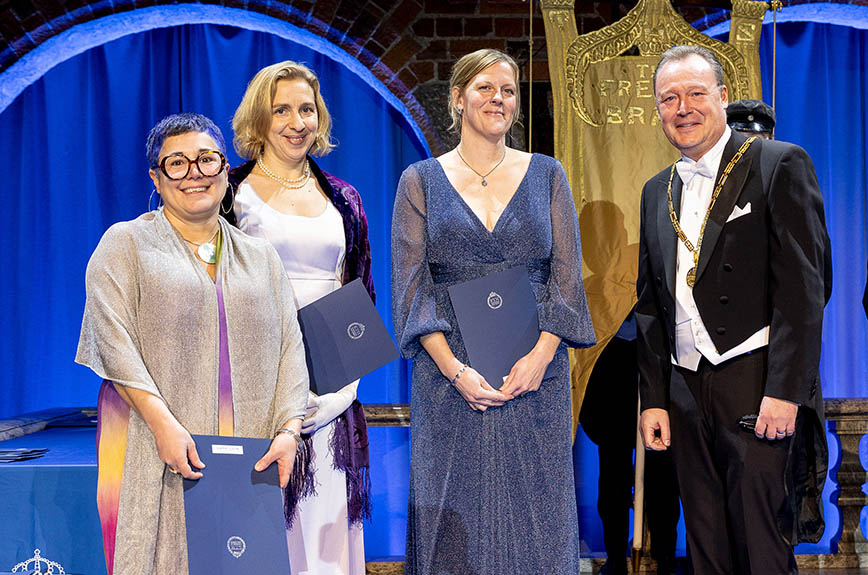Equality work is constantly relevant

Why do women, compared to men, not seem to have similar opportunities to pursue an academic career and reach a permanent teaching position? This is what Canalias, Lundström and Prahl Wittberg wanted to find out. They all work at the School of Engineering Sciences and are recipients of the President's Equality and Diversity Award 2023 for their inventory of equality problems at their school.
"It was joint observations and reflections that led to the idea of doing this study,' says Canalias, Professor at the Department of Applied Physics.
The mapping is based on interviews with men (17) and women (30) within their own school at KTH. The work resulted in an inventory report. The report describes the interviewed employees' individual paths to a permanent teaching position at the School of Engineering Sciences and the difficulties they encountered.
"We focused on the merit phase. What makes a person stay in academia or leave? What are the underlying strategies for creating an academic career?' That was the starting point," says Prahl Wittberg, Professor at the Department of Engineering Mechanics.
Lundström, Professor at the Department of Applied Physics, adds:
"Our goal was to collect a number of stories from the school's employees to find out if there was any pattern in their accounts that could indicate a real system failure.
The three colleagues behind the report emphasise that it is hard work to earn merit in academia, regardless of gender.
However, the stories of the women interviewed revealed more setbacks that were also of a different nature than those of the men. For example, they often describe the feeling of not being taken seriously, respected for who they are, or constantly being questioned about their own competences.
The report has been disseminated both within KTH and outside the university. In addition, the quotes in the study are used as reflection material in workshops for management groups and with doctoral students at KTH.
"This is more a working material than a research report. It gives a presentation of the situation, and the quotes in the study serve as a tool for self-reflection,” says Canarias.
What do you think is the most important thing for KTH to do based on your analyses?
Lundström says:
"To continue to work with cultural changes within the organisation, through continuous discussions and reflections.
Prahl Wittberg notes that equality work must be kept going in the organisation:
"It's about ensuring that the best people within their fields have the opportunity to develop on equal terms, and that they find a peaceful environment to do the job we want them to do. It’s about ensuring that we don't lose any of these individuals along the way. You should not have to face unnecessary resistance. We can't afford that in terms of expertise.
Text: Marianne Norén
